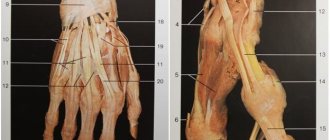Previously, all diseases were treated by only one doctor. At that time, medicine was at a very modest level and could not cope with many diseases. However, later, scientists realized that it would be much more reasonable to divide doctors into narrow areas in which they could develop and improve themselves as much as possible. This event can be considered a major step towards progressive medicine. Now there are a huge number of doctors, each of whom is responsible only for his own area. Today you will find out who a neurologist is and what ailments he works with, and also get acquainted with the progress of his appointment.
What does a neurologist do?
The branches of neuropathology study nothing more than the nerves and nervous system. A doctor who works in this field is called a neurologist. Scientists involved in this area are developing various new diagnostic and treatment methods, as well as studying various diseases.
Many people wonder who a neurologist is. Today we will answer this question, because a neurologist and a neurologist are the same doctor.
A neuroneurologist or neurologist is a doctor who graduated from medical school with a specialty in pediatrics or general medicine, and then completed his residency in neuropathology. Such education requires quite a lot of time and is given only in full-time mode.
This specialist treats children and adults. He deals with diseases associated with disorders of the nervous system. In more detail, its competence includes the back and brain, as well as the peripheral nervous system.
A neurologist is often confused with other doctors. This comes from the fact that there are specialists who work in a very similar industry.
Who should neurologists not be confused with:
- Psychiatrist;
- Psychotherapist;
- Psychologist.
All these specialties are close to neuropathology. And often, they work together. However, a psychologist works with nervous disorders, and a psychiatrist treats people with serious disabilities. A pediatric neurologist treats diseases of the nervous system in the same way as an adult. However, he works with children and therefore has great responsibility.
Role of the nervous system
The nervous system is the most perfect and complex creation of living nature. This organ is responsible for the perception of exo- and endogenous signals and their analysis. In other words, this system ensures normal interaction of the human body with the outside world. The nervous system performs the following functions:
- regulation of the vital functions of all tissues, organs and systems;
- maintains homeostasis;
- integration of the body into a single whole;
- collection and analysis of information coming from receptors;
- ensuring mental processes (sensitivity, perception, representation, emotions, sensation, imagination, speech, memory, thinking, attention, consciousness);
- coordination and coordination of body functions.
The nervous system is the most perfect and complex creation of living nature. This organ is responsible for the perception of exo- and endogenous signals, their analysis, translation, processing and response. In other words, this system ensures optimal interaction of the human body with the outside world. Adaptation of the body to the environment is carried out through the interaction of humoral and nervous regulatory mechanisms. Key functions of this system:
- regulation of the functioning of all organs and tissues;
- maintains homeostasis;
- integration of the body into a single whole;
- collection and analysis of information coming from receptors;
- ensuring mental processes (sensitivity, perception, representation, emotions, sensation, imagination, speech, memory, thinking, attention, consciousness);
- coordination and coordination of body functions.
What does a neurologist treat: list of diseases
As you already understand, a neurologist works with various pathologies of the nervous system. This doctor is the first person you should contact if you suspect the presence of diseases in this organ.
It is worth noting the fact that neuropathology is closely related to pediatrics, neurosurgery and psychiatry. Usually these doctors work together.
To understand what a neurologist does, you need to know what diseases he deals with. Let's see what this profession is responsible for.
Problems that a neurologist helps solve:
- Arachnoiditis is a disease affecting the arachnoid membrane of the brain. It can be caused by various injuries and infections, including poisoning.
- Various manifestations of insomnia.
- Parkinson. With this disease, muscle tone is abnormally increased and movements are slow.
- Alzheimer's. This disease affects the psyche, the patient begins to lose memory, ceases to think rationally, muscles weaken and lose sensitivity.
- Hydrocephalus and pressure inside the skull.
- Severe, unrelenting headache. Associated with nervous tension and constant stress. Common to women and children.
- Stroke. This name describes a cerebral hemorrhage.
- Cerebral palsy or cerebral palsy.
- Sciatica is a disease of the sciatic nerve. With it, severe pain appears in the sacrum area.
- Ischemic stroke - this name of the disease characterizes improper blood circulation in the brain, as a result of which its tissues are damaged.
- Cluster headaches. With this syndrome, the patient feels a stabbing pain in the eye or behind it, this sensation can radiate to the ear or cheek.
- Lumbago pain. This is a short-term unpleasant sensation that occasionally occurs in the lower back.
- Meningitis. This includes tuberculous meningitis.
- Myasthenia. The cause of this disease is genetics. This disease is characterized by muscle weakness.
- Myelitis or infection of the spinal cord.
- Migraine.
- Pathology of muscle tone in children.
- Myopathy. Caused by damage to muscle tissue.
- Neuralgia. This is a severe, acute pain that is caused by inflammation of the peripheral nerve.
- Cancer of the spine or brain.
- Neuropathy and neuritis.
- Polio. An infection that affects the spinal cord leads to paralysis.
- Multiple sclerosis. This disease affects the central nervous system.
- Hyperactivity and attention deficit disorder. Characteristic of children and adolescents.
- Willis disease. This disease causes a person to constantly move their legs.
- Chronic fatigue that does not go away over a long period of time.
- Poor blood circulation in the brain. This problem is fraught with necrosis of brain tissue.
- Tunnel syndrome. With this disease, nerves are pressed against protrusions on the vertebrae.
- Extrapyramidal type disorders. Impaired muscle tone with twitching or immobility.
- Encephalitis and encephalopathy.
All these diseases are examined and studied by a neurologist. It helps to cope with ailments or slow down their progression.
When should you contact a neurologist?
You should visit a neurologist's office if you have the following symptoms:
- Frequent and severe headaches;
- Fainting, sudden loss of consciousness;
- Noise in the ears, head, flashing dots before the eyes;
- Sleep disturbance;
- Increasing feeling of anxiety;
- Chronic fatigue;
- Blood pressure surges;
- Low mood;
- Irritability;
- Decreased concentration;
- Heart rhythm disturbances;
- Pain in the left side of the chest.
Neurological symptoms for which you need to see a doctor
Prevention of a disease is always more effective than its treatment. Therefore, if you have even the slightest complaints, you should immediately visit a neurologist. In this case, the treatment will be most effective.
Diseases associated with neuralgia are extremely dangerous. However, they do not always show themselves. Therefore, even the slightest deviation from the norm in this area should be a serious reason for visiting a neurologist.
To know when to see a neurologist, you need to know how diseases manifest themselves. Let's take a look at the list of main signs of neurological diseases.
What symptoms should you contact a neurologist for:
- If you experience headaches more than once a week. With such sensations, nausea may occur, blood pressure rises, and visual disturbances may occur.
- Dizziness often occurs.
- Periodic loss of vision for several hours or days. Over time, visual function is restored.
- Muscle weakness that progresses slowly but inexorably.
- Loss of consciousness.
- Stiffness in the body. May be accompanied by a delay in motor reactions.
- Trembling of hands and feet.
- Sudden and frequent muscle cramps.
- Pain in the back and limbs.
- Numbness and tingling of the skin.
- Memory impairment.
- Insomnia and excessive sleepiness.
- Impaired taste and smell.
- Attacks of fear, panic, increased heart rate, chills and fever.
If you experience any of the listed sensations, then you should immediately contact a neurologist. After all, they can indicate either a mild emotional disorder or a lack of vitamins and minerals in the body, or terrible diseases that can be treated only in the early stages.
Reasons why you need a neurologist
Neuropathological diseases rarely occur on their own. There is usually a fairly serious reason for this. By comparing the factor with unpleasant symptoms, you will be able to suspect in time the presence of any illness in this area.
You have probably never heard such a phrase as “juvenologist”. Who is it? Such specialists can work in different areas with teenagers. Such doctors must be not only professionals in their field, but also experienced psychologists.
So, you should know the reasons why people see a neurologist. This will help you avoid some of them.
Causes of neurological diseases:
- Due to infections. The spinal cord and other parts of the nervous system can also be affected by various parasites, fungi and viruses.
- Pregnancy can also cause the development of neuropathological diseases. Some viruses are transmitted through the placental route.
- Various injuries, such as bruises to the back and head, can cause serious neurological problems.
- Vascular disorders can be caused by a number of factors. Vascular disease leads to disorders in the central nervous system.
- Heredity is one of the main factors causing neurological diseases. This also includes chronic illnesses.
The list of factors that cause diseases in the nervous system suggests that in most cases their development does not depend on us. However, if you lead a healthy lifestyle, the need to visit a neurologist’s office will not arise soon.
Treatment of neurological diseases
Neurologists use either one or more treatment methods. Conventionally, they can be divided into 4 groups.
- Medication. This method of treatment involves taking medications that help treat diseases of the nervous system.
- Drug-free. It often comes in combination with other methods. This includes proper diets selected by a doctor, reflexology, acupuncture and other non-standard treatment methods.
- Physical. Includes sets of exercises for the treatment of nerve diseases. In addition, the physical method includes electrophoresis, laser therapy and other similar procedures.
- Surgical. It is used in the most extreme cases, when other methods were ineffective and the disease continued to develop. The operations are performed by a neurosurgeon using modern technology and equipment.
Appointment with a neurologist
Many people are afraid to go to see a neurologist with their problems, because they do not know what happens during the examination. The neurology department is quite specialized, but knowing what a neurologist does will not put you in an awkward position.
What happens during an appointment with a neurologist:
- First of all, the doctor looks at your medical history and also listens to your complaints;
- Next, he checks the reflexes and palpates the patient;
- The doctor will also order tests to help identify the causes of your anxiety.
After the patient undergoes all the necessary examinations and tests, he is prescribed treatment. This could be medications, physical therapy, etc. Simply put, an obituary is a doctor who does everything so that you do not end up in an obituary because of your illness.
How is an appointment with a neurologist?
Having a correct idea of who this is and what a neurologist treats, many patients are afraid to come to see him because they do not know his features. In fact, a consultation with a neurologist is no different from visiting any other doctor.
. The specialist gets to know the patient, asks in detail about complaints, medical history, finds out concomitant pathologies, risk factors and other individual characteristics. A neurologist with sufficient experience can already guess at the first glance at the patient the nature of the disease, but an accurate diagnosis is established on the basis of specific studies.
An appointment with a neurologist includes the following examination options:
- diagnostics of the function of the optic nerves (a special hammer is used, which you need to follow with your eyes);
- study of facial muscle disorders (the doctor may ask you to change your facial expression, show your tongue, smile, and so on);
- checking the sensitivity of individual parts of the body (the method does not cause serious inconvenience, but the patient must monitor his own sensations as closely as possible and answer the neurologist’s questions);
- a neurologist checks superficial and deep reflexes using a special hammer (in addition, he must assess the condition of the muscular system);
- a coordination check is mandatory (the patient stands up straight, stretches his arms forward and closes his eyes, alternately bringing his index fingers to his nose);
- Memory assessment is carried out during a conversation.
Additional diagnostic methods include all laboratory indicators (the neurologist selects those studies that will help exclude or confirm a certain pathology). Instrumental methods can be the following: radiography, EEG, CT, ultrasound, angiography, MRI, cerebrospinal fluid puncture and others.










